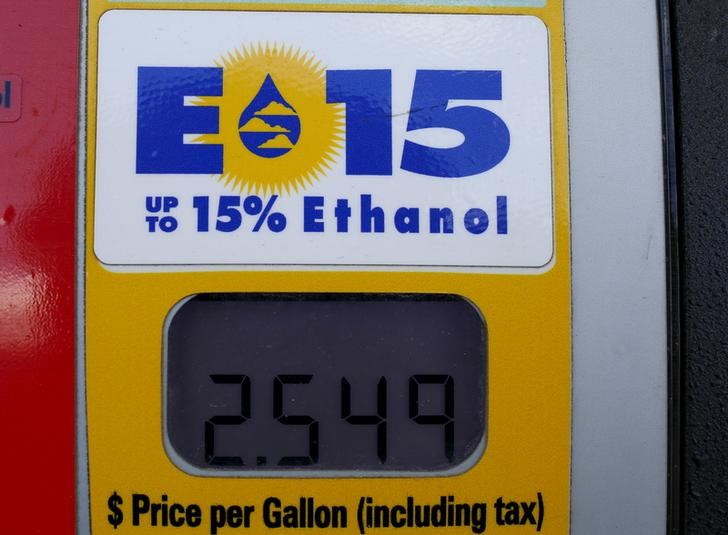Investing.com’s stocks of the week
NEW YORK (Reuters) - A group of 22 members of the U.S. House of Representatives asked the Environmental Protection Agency in a letter on Thursday not to lower some requirements for mixing biofuels into the country's fuel supply, but also not to let ethanol exports qualify for renewable fuel credits, according to a copy of the letter obtained by Reuters.
The members of Congress are part of a bipartisan voting bloc dedicated to supporting the biofuels industry called the House Biofuels Caucus. They represent districts in states such as Iowa and Illinois where farmers grow corn for ethanol and other biofuels. They urged the agency to increase biomass-based biodiesel requirements and not to decrease the amount of advanced biofuels required to be added to the fuel supply.
"Our farmers and biofuels producers need greater certainty from the EPA," the letter said, adding recent proposals the agency said it was considering "create unnecessary angst."
"We will respond to the House Biofuels Caucus through the proper channel," said EPA spokesman Jahan Wilcox in an email to Reuters.
Midwestern politicians and industry representatives have been pressuring the EPA not to reduce renewable fuel standards.
Fuel companies, meanwhile, want to change certain rules for complying with the standards to make it easier and cheaper for them to meet their renewable fuel requirements. They want ethanol exports to count as tradable credits toward their renewable fuel requirements, a proposal the Biofuels Caucus members condemned.
"This proposition would upend infrastructure investments needed to blend ethanol into our fuel supply and pick winners and losers in a manner inconsistent with the Congressional intent of the Renewable Fuel Standard," they wrote.
Iowa's Governor Kim Reynolds said that President Donald Trump told her on a phone call on Wednesday that he was committed to renewable fuels, though advocates say they won't be satisfied until the EPA reverses recent steps it has taken to lower renewable fuel requirements.
Last month, the EPA said it was looking to cut 2018 biodiesel blending requirements, roiling markets and drawing criticism from the country's farm belt. In July, it proposed cutting total volumes of all renewable fuels use for next year.
